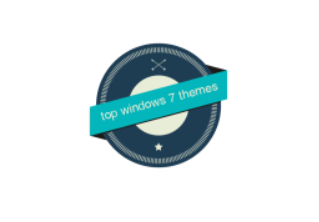When looking to buy hosting for your website, one of the first decisions you’ll need to make is whether to go with Linux or Windows hosting. Both operating systems have their pros and cons, so let’s break down the key differences to help you determine the best option for your needs.
What is Linux Hosting?
It is a type of web hosting in which the Linux operating system is used to host websites and web applications. The most widely used server operating system is Linux, which holds around 80% of the global market. It is an open-source operating system. Because you can install it on your servers without purchasing a licence, it is more popular than Windows.
Databases like PostgreSQL, MariaDB, and IBM Db2 are frequently used with Linux server operating systems to power websites and applications created with PHP, Perl, and other programming languages. It provides a wide range of extra language and database choices to meet your various project needs.
Some of the most popular Linux distributions used by web hosts include:
- Ubuntu
- CentOS
- Debian
- Fedora
- Red Hat Enterprise Linux (RHEL)
- SUSE Linux Enterprise Server (SLES)
Advantages of Linux Hosting
Here are some of the benefits of Linux Hosting if you are planning to buy hosting for your business:
- Freedom & Flexibility: Open-source Linux platform provides a lot of flexibility and customisation to the developers. There is no restriction on modifying source code, and on installing tools at will.
- Lower-cost: Linux hosting is very cost-effective, being free of high-cost proprietary software licences and rates. It is inexpensive to begin with, and the costs to scale are low.
- Efficiency and Performance: Linux is an efficient server with a limited server footprint; it uses inexpensive system resources. This will allow high performance and size to support high-traffic websites.
- Stable platform:Linux servers are reliable and stable and are based on sound open-source architecture, which is continuously updated and locked into place through an active developer community.
What is Windows Hosting?
Windows hosting is the presence of a web application or website on a server operating system developed by Microsoft. In contrast to Linux, which allows distribution under open-source, Windows is a paid operating system, and you will be required to buy a licence to install it on your servers.
Probably the best way of selecting the edition of Windows Server would be to depend on your particular needs and the hosting. The DataCenter weaponises the entire set of features provided by Microsoft; thus, it is an optimal solution in the case of a large-scale operation of a business that possesses massive data centres.
Advantages of Windows Hosting
Below are the benefits of Windows Hosting:
- Trusted & Familiar Platform: Windows is a well-established and popular operating system used by over 1 billion people globally. Its familiar interface is easy to navigate.
- Seamless Windows Integration: Windows hosting enables seamless integration with other Windows-based tools and technologies used in your stack.
- Supports Legacy Apps: Older apps and workloads designed for Windows Server will seamlessly transition to a Windows hosting environment.
- Robust Microsoft Products: You gain native compatibility with Microsoft’s suite of well-supported server software, databases and developer tools.
- Access to Direct Support:As a paid proprietary platform, Windows provides official vendor support channels to assist you when needed.
Difference Between Linux and Windows Hosting
Here is the comparison between Linux hosting and Windows Hosting:
| Aspect | Linux | Windows |
| Cost | Free and open-source | Paid licence required |
| Customisation | Highly customisable through code and open tools | Limited customisation options |
| Security | Strong security due to user permissions and fewer malware attacks | More prone to viruses and requires regular updates and antivirus software |
| Performance | Lightweight, runs well on older hardware | Requires more system resources |
| Software Support | Lacks native support for many commercial applications | Broad compatibility with most software and games |
| User Interface | May require a learning curve; various desktop environments are available | User-friendly and standardised interface |
| Community Support | Strong community forums and developer contributions | Official Microsoft support with forums |
| Usage Scenario | Preferred for programming, servers, and tech users | Ideal for gaming, business, and everyday use |
Which is Better for You?
Linux is best if you want an affordable and efficient hosting plan to run open-source software. It works great for hosting websites built using PHP, MySQL, Python, Ruby on Rails, etc.
Choose Windows if you specifically require Windows-only software like ASP.NET or proprietary databases like MS SQL. This is essential if migrating existing Windows-based sites and apps.
If you’re still unsure which one to go for, check out our in-depth comparison on Linux vs Windows Hosting to understand the pros, cons, and ideal use cases for each.
While the technology behind them is pretty different, both Linux and Windows hosting can enable you to host and manage your web applications and sites successfully. Assess your budget, compatibility needs and software preferences to decide which operating system works best to align with your hosting requirements.




